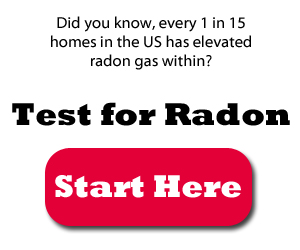It was reported that radon is responsible for more than 21,000 American deaths every year. This is a huge number, considering that it only comprises American citizens. Aside from that, the World Health Organization stated that radon is also the leading cause of lung cancer among non-smokers, whereas it is second overall only to smoking.
With these facts, it is evident that radon is dangerous, so you have to eradicate it in your home, whether buying or selling one. When it comes to radon mitigation, who should pay for radon mitigation? Let’s all find out.
A House With Radon Mitigation System: Who Should Pay for It?
If you are buying a home or relocating to a new one, you must ensure that the house is radon-free. And if not, radon mitigation must be installed, especially if the result of radon tests are consistently high. But installing a radon mitigation system requires fees considering the materials used and the radon contractor who will install the system.
The question is, should you, the buyer, pay for it? Or is it the seller responsible for the expenses?
Usually, it is the seller who pays for radon mitigation. The radon mitigation system is part of the sale, which helps sellers convince people to buy the house. If you are selling your home, you may conduct long-term radon testing before the date you want to sell the house. If the results are consistently high, you have to consider radon mitigation.
If you are a buyer and the house has no mitigation system yet, you may also conduct radon testing and give the test results to the seller. The seller will only pay for a new mitigation system if the radon levels are over four pCi/L. Suppose you are within the safe range; it is up to you, as a buyer, to pay for mitigation.
Does Homeowners Insurance Cover Radon Tests?
Many homeowners consider houses with insurance, but do they cover radon tests? Unfortunately, the answer is no. High radon levels do not come from toxic spills or accidents. Therefore, homeowners insurance does not cover other radon testing or mitigation. Take note that you can only take advantage of your insurance policy only in when damage is “sudden and accidental.” In this case, radon is not included.
Radon is a silent killer; that’s why you have to do all the things you can do to eradicate it. If you cannot install a radon mitigation system despite the high radon levels, there could be huge risks to several health concerns, including lung cancer. Therefore, make sure to have a radon mitigation system, whether buying or selling a house. Either way, you can help yourself, your loved ones, and those who will live in the house safe from the cancer-causing gas.



